Top 10 Football Clubs with the Most Successful Academy Graduates 2025 highlights the teams that have mastered the art of nurturing young talent into world-class professionals. In modern football, where transfer fees skyrocket, developing homegrown players is not just a tradition but a smart long-term strategy. These clubs have consistently produced players who shine not only for their teams but also on the global stage, representing their nations in major tournaments. From legendary icons to emerging superstars, their academies have been the birthplace of football greatness.
This list celebrates academies that focus on technical skills, tactical understanding, and personal growth, creating players with both talent and character. It covers clubs across Europe and beyond, whose graduates have lifted Champions League trophies, won domestic titles, and earned global recognition. Some of these players stay loyal to their boyhood clubs, becoming fan favorites, while others make high-profile moves, spreading their academy’s reputation worldwide.
In 2025, these academies continue to prove that investment in youth is one of the most rewarding aspects of football. Whether producing prolific goalscorers, rock-solid defenders, or creative playmakers, these institutions remain the gold standard for developing the stars of tomorrow while keeping football’s roots alive.
10. Arsenal (England)
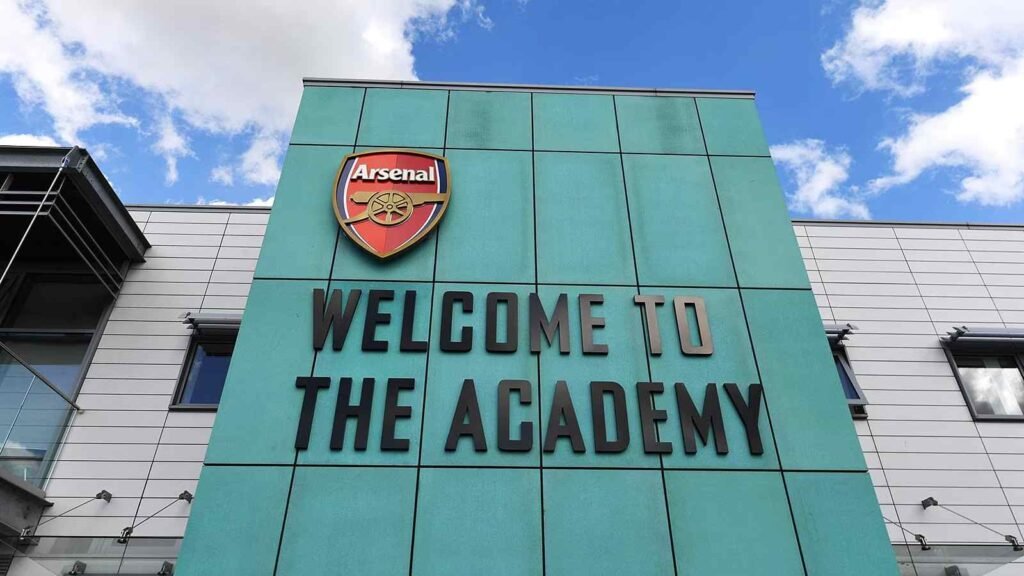
Arsenal’s Hale End academy has long been a cornerstone of the club’s philosophy, producing technically gifted, intelligent footballers who thrive in possession-based systems. According to CIES Football Observatory, Arsenal is the most productive Premier League training club in 2025, with 51 players currently active in top-tier UEFA leagues who spent at least three years in their academy.
Hale End has nurtured stars like Bukayo Saka, Emile Smith Rowe, and Joe Willock, who have all made their mark in the Premier League. The academy is known for balancing technical development with tactical awareness, ensuring graduates can adapt to various styles of play.
In recent years, Arsenal’s youth system has benefitted from strategic investments in coaching, facilities, and international scouting. This has allowed them to attract and develop top talent from a young age while retaining a clear path to the senior squad. The club’s willingness to trust academy graduates in competitive matches has been key to their success, creating a steady flow of first-team players and valuable transfer assets.
By combining tradition with innovation, Arsenal’s academy remains one of the best in the world, helping the Gunners maintain a competitive edge while staying true to their identity of producing homegrown stars.
9. AS Monaco (France)

AS Monaco’s academy is a prime example of how a club can combine elite development with a business model focused on nurturing and selling top talent. Over the years, Monaco has produced some of Europe’s most exciting players, from Kylian Mbappé to Bernardo Silva, cementing its place as one of the most respected academies in the world.
In 2025, Monaco continues to lead in Ligue 1 for academy productivity, with dozens of players active in major leagues across Europe. The club’s youth program focuses on technical sharpness, mental resilience, and exposing players to competitive environments at an early age. Their willingness to integrate youngsters into the first team has accelerated many careers, turning academy graduates into household names.
Monaco’s location and scouting network also give it access to both French and international prospects, ensuring a diverse pipeline of talent. The club’s training centre, La Turbie, is equipped with state-of-the-art facilities designed to prepare players physically, technically, and mentally for professional football.
The ability to produce players capable of shining in top European clubs while also strengthening their own squad is Monaco’s biggest strength. The academy remains a vital source of both competitive advantage and financial sustainability for the club’s long-term vision.
8. Southampton (England)
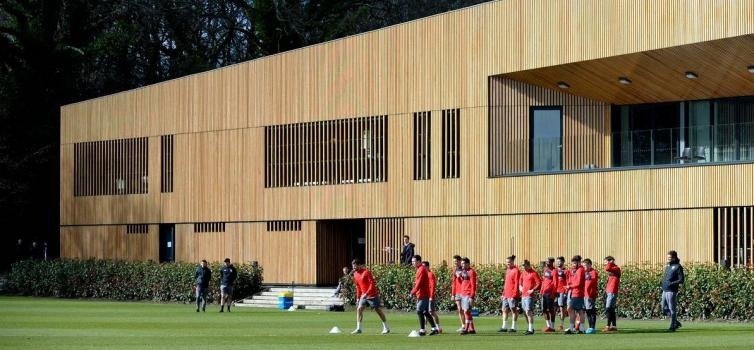
Southampton’s academy has built a reputation as one of the Premier League’s most productive youth systems. Known for its focus on technical development and football intelligence, the club has consistently produced players who excel at the highest levels. Household names like Gareth Bale, Theo Walcott, and Luke Shaw are all products of the Saints’ youth program.
In 2025, Southampton continues to rank among the top training clubs in England. Their model prioritises giving young players opportunities in the first team, allowing them to develop in competitive Premier League environments rather than being loaned out too early. This philosophy not only shapes confident professionals but also ensures the club benefits from their contributions before potential big-money moves.
The Staplewood Campus, Southampton’s state-of-the-art training facility, plays a key role in their success. Here, players are taught a style of football that encourages intelligent movement, precise passing, and adaptability. The academy’s scouting network is also well-regarded, identifying young prospects both locally and internationally.
By balancing strong player development with financial sustainability, Southampton continues to thrive as a talent factory. The club’s ability to prepare graduates for careers across Europe while maintaining a competitive squad makes them one of football’s most respected academies in 2025.
7. Sporting CP (Portugal)

Sporting CP has one of the most iconic academies in world football, with a history of producing generational talents who leave lasting marks on the game. Cristiano Ronaldo, Luís Figo, and Bruno Fernandes are just a few of the legends who came through their ranks. The club’s youth philosophy emphasises technical mastery, tactical intelligence, and resilience under pressure.
In 2025, Sporting continues to dominate Portugal’s academy scene, with dozens of graduates active in Europe’s top leagues. Their Alcochete academy complex is regarded as one of the best in the world, featuring advanced sports science programs, mental coaching, and elite match preparation systems. Youngsters are immersed in a football culture that values creativity and flair, traits that have long defined Portuguese football.
Sporting’s willingness to trust young players in high-pressure situations has been a cornerstone of its identity. Whether in domestic league matches or European competitions, academy graduates regularly feature in the starting lineup, gaining experience that accelerates their growth.
This consistent production of talent not only strengthens Sporting’s competitive position but also generates significant transfer revenue, helping the club reinvest in its facilities and scouting network. Sporting CP’s academy remains a model for blending tradition with modern football development in 2025.
6. Boca Juniors (Argentina)
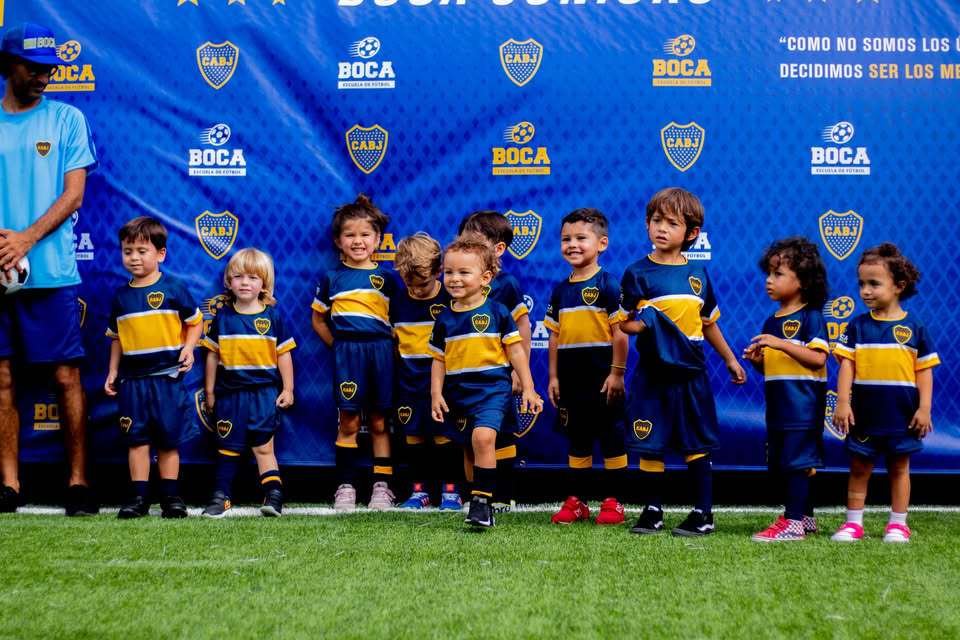
Boca Juniors’ academy, known locally as “La Candela,” has been a cornerstone of Argentine football for decades. Producing technically gifted and mentally tough players, Boca has shaped stars like Carlos Tevez, Fernando Gago, and Éver Banega. The emphasis is on combining flair with grit — a style that embodies the passion of Argentine football.
In 2025, Boca’s youth system continues to thrive, producing players who make their mark both in the domestic league and across Europe. Scouts from major clubs frequently visit Boca’s matches, knowing the academy consistently delivers high-potential talents capable of handling intense atmospheres.
Boca’s philosophy focuses on nurturing skillful players who are also tactically aware and physically prepared for the demands of professional football. The competitive nature of Argentina’s youth divisions ensures that academy graduates learn to adapt quickly to high-pressure situations, making them desirable to top clubs worldwide.
Beyond producing stars for transfer, Boca integrates many of its academy graduates directly into the senior team, preserving the club’s identity. Their academy is not just a training ground — it’s a cultural institution, deeply tied to the club’s fierce spirit. In 2025, Boca Juniors remains a symbol of South American talent development and a powerhouse in shaping football’s next generation.
Also Read:
- Top 10 Football Clubs with the Most Iconic Rivalries in 2025
- Top 10 Football Clubs with the Most Famous Club Songs 2025
- Top 10 Football Clubs Known for Their Iconic Club Mascots 2025
- Top 10 Football Clubs with the Most Expensive Squads 2025
5. West Ham United (England)
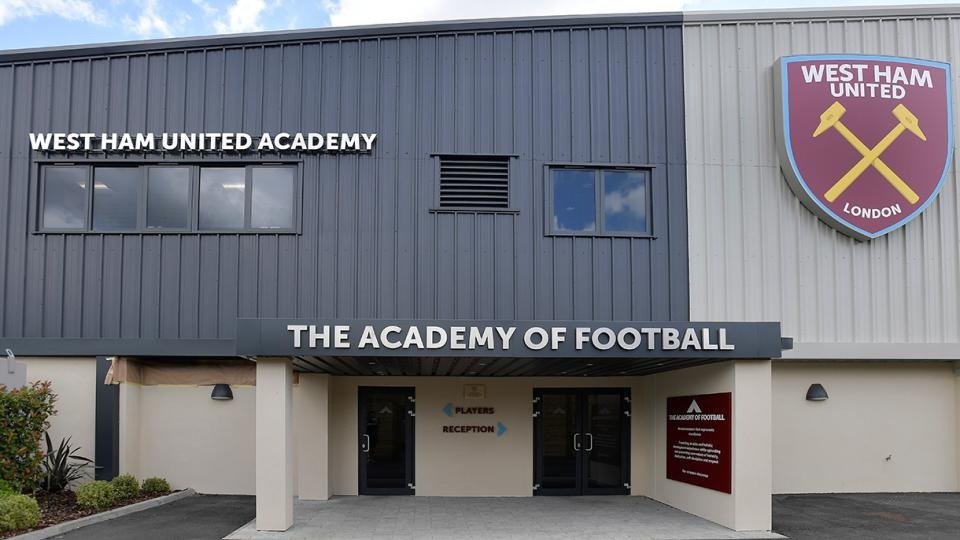
West Ham United’s “Academy of Football” is legendary in England for producing elite-level players. Frank Lampard, Rio Ferdinand, Joe Cole, and Declan Rice are among the many who honed their skills at the club’s Chadwell Heath training ground. The academy focuses on technical excellence, tactical understanding, and adaptability, creating well-rounded professionals.
In 2025, West Ham remains a breeding ground for English talent, frequently supplying the Premier League and national team with top-tier players. Their youth coaches prioritise game intelligence, encouraging players to think ahead and control the tempo of matches — traits that help them thrive in England’s fast-paced football environment.
One of West Ham’s strengths lies in giving young players first-team exposure early in their careers. This real-world experience against seasoned professionals helps accelerate their development. Many graduates become leaders both on and off the pitch, a testament to the academy’s focus on building character alongside skill.
The club also benefits financially, with academy-produced stars often attracting high transfer fees that can be reinvested into facilities and recruitment. The “Academy of Football” is not just a nickname; it’s a philosophy deeply ingrained in West Ham’s DNA, ensuring their status as one of the most respected talent factories in 2025.
4. FC Barcelona (Spain)

FC Barcelona’s La Masia academy is synonymous with excellence in football education. Producing icons such as Lionel Messi, Xavi Hernández, Andrés Iniesta, and Sergio Busquets, it has shaped generations of players who defined modern football. La Masia’s philosophy blends technical mastery with a deep understanding of positional play, embodying Barça’s famous tiki-taka style.
In 2025, La Masia continues to produce exceptional talents who seamlessly fit into Barcelona’s system. The academy’s curriculum is built around ball control, spatial awareness, and quick decision-making — skills that allow graduates to adapt to any league or style of play.
What sets La Masia apart is its integration with Barcelona’s first team. Young players are trained to play the same way at every level, ensuring a smooth transition to senior football. This creates a pipeline of homegrown talent capable of sustaining the club’s footballing philosophy.
The academy also places great importance on education, life skills, and character building, producing well-rounded individuals as well as elite athletes. While the financial pressures of modern football have forced Barcelona to look abroad for some signings, La Masia remains central to the club’s identity. In 2025, it continues to set the standard for youth development worldwide.
3. Real Madrid (Spain)
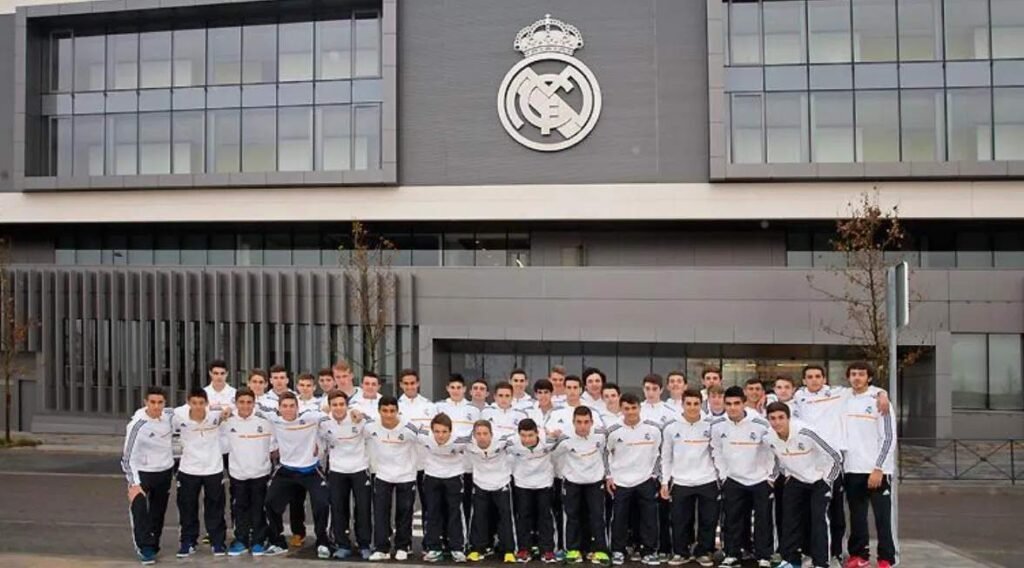
Real Madrid’s academy, La Fábrica, has quietly built a reputation for producing some of Spain’s finest footballers. While the club is known for its “Galáctico” signings, its youth system has developed stars like Raúl, Iker Casillas, Dani Carvajal, and Achraf Hakimi. The academy blends Spanish technical flair with the physical demands of top-level football.
In 2025, La Fábrica’s influence is felt across Europe, with graduates excelling in various leagues. The training program focuses on developing intelligent, adaptable players who can thrive under the tactical and physical challenges of elite competition.
Unlike some academies that focus only on producing for their own first team, Real Madrid’s approach also prepares players for successful careers elsewhere. This ensures that even if they don’t break into the star-studded senior squad, they become valuable assets in global football.
La Fábrica is also deeply connected to the club’s tradition and values, instilling professionalism, discipline, and resilience in its graduates. With state-of-the-art facilities and a coaching staff experienced in both youth and senior football, Real Madrid’s academy remains one of the best in the world. In 2025, it continues to balance its heritage with modern player development methods.
2. Manchester United (England)
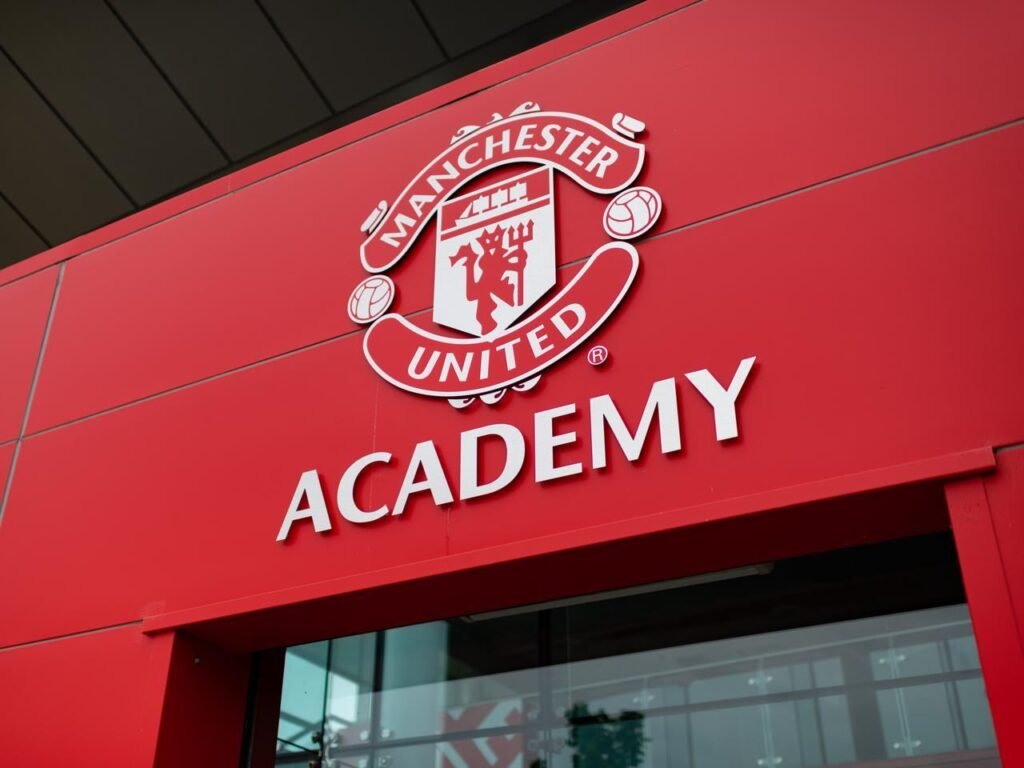
Manchester United’s academy is one of the most celebrated in football history, producing icons such as Ryan Giggs, Paul Scholes, David Beckham, and more recently Marcus Rashford. Known for its tradition of giving young players a chance, the academy holds a record of including at least one homegrown player in every matchday squad for decades.
In 2025, the club’s Carrington Training Centre continues to nurture talent that blends technical ability with the physicality needed for Premier League football. Coaches focus on developing players who can handle pressure, adapt to different styles, and lead on the pitch.
The academy’s close connection to United’s identity means that promoting youth is not just an option — it’s a core principle. Young players are regularly integrated into the first team, learning from world-class professionals while contributing meaningfully to matches.
Financially, Manchester United’s youth system also provides stability. Graduates often become key squad members or attract significant transfer fees, ensuring a sustainable cycle of talent production. With strong scouting, excellent facilities, and a proven track record, United’s academy remains a gold standard in 2025 for developing players capable of shaping football’s future.
1. Ajax (Netherlands)
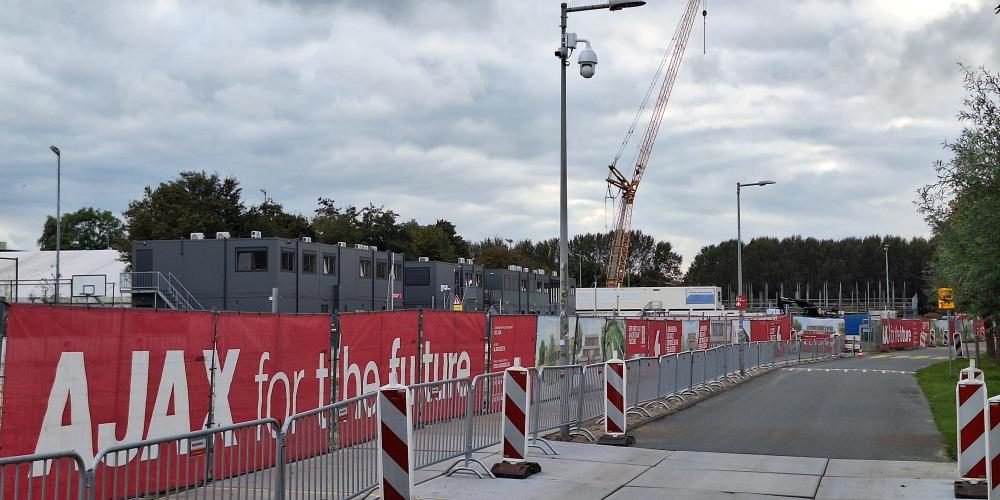
Ajax’s youth academy, De Toekomst (“The Future”), stands as the ultimate benchmark for football development. Producing legends like Johan Cruyff, Dennis Bergkamp, and more recently Matthijs de Ligt and Frenkie de Jong, Ajax has perfected the art of creating complete footballers.
In 2025, De Toekomst remains unmatched in its ability to produce technically gifted, tactically intelligent, and fearless players. The academy’s philosophy emphasises ball mastery, spatial awareness, and creative decision-making — all while encouraging freedom of expression on the pitch.
What makes Ajax unique is its absolute commitment to youth. Graduates are not just given chances; they are trusted as core parts of the first team, often playing in high-stakes matches from a young age. This trust builds confidence and resilience, key traits for success at the top level.
The academy also thrives as a financial powerhouse for the club. Selling graduates to Europe’s biggest teams generates revenue that is reinvested into facilities, scouting, and community programs. More than a football school, De Toekomst is a cultural institution — a place where the Ajax way of playing is passed down through generations.
In 2025, Ajax’s youth academy remains the world’s leading talent factory, shaping both the future of the club and the game itself.
FAQ’s:
Which football club has produced the most successful academy graduates in 2025?
In 2025, FC Barcelona’s La Masia remains one of the most respected academies in world football. Known for producing world-class players like Lionel Messi, Xavi Hernández, and Andrés Iniesta, it continues to nurture young talents who shine at both club and international levels. However, other clubs like Ajax and Manchester United also have outstanding academies that rival Barcelona’s in producing top-tier professionals.
What makes a football academy graduate “successful”?
A successful academy graduate is typically defined by their achievements in professional football after leaving the youth system. This includes consistent appearances at top-level clubs, contributions to major tournament victories, individual awards, and a strong influence on their teams. Many graduates also represent their national teams, adding to their status as highly successful products of their academies.
Why are football academies important for modern clubs?
Football academies are essential for both player development and club sustainability. They allow teams to cultivate homegrown talents instead of relying solely on expensive transfers. This not only saves money but also creates a strong club identity. Players who rise through the academy often have a deeper connection with the club’s culture, values, and playing style, making them vital long-term assets.


